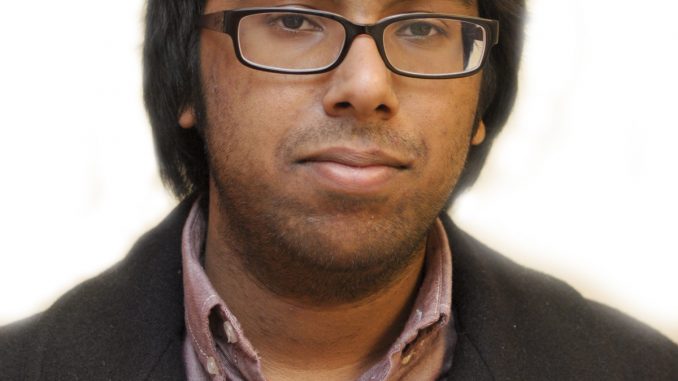
 On what is normally a day of carefree celebration, Jewish students at Temple may find themselves in a spiritual quandary come May 16, the scheduled date for the university’s undergraduate graduation. That date overlaps with Shavuot, a three-day holiday that begins sunset of May 14 and extends until nightfall of May 16, which celebrates the handing down of the Torah to the Israelites.
On what is normally a day of carefree celebration, Jewish students at Temple may find themselves in a spiritual quandary come May 16, the scheduled date for the university’s undergraduate graduation. That date overlaps with Shavuot, a three-day holiday that begins sunset of May 14 and extends until nightfall of May 16, which celebrates the handing down of the Torah to the Israelites.
While observance of the holiday would obviously preclude a number of students and their families from attending the ceremony, the conflict of occasions appears to be either lost or a relative nonissue on the part of the university, an institution that extols its diversity and ethnic and religious multiculturalism.
Shavuot is a “day to be separate from the world,” said senior theater major Sharon Litwinoff, who comes from a conservative Jewish home.
It is a respite from the ceaseless whirr of the material world, a day dedicated to study and contemplation of the sacred Jewish text. She has observed Shavuot all her life, even when there have been similar conflicts, such as school trips: “I mean, I wanted to go, but I knew I couldn’t,” she said.
“Is it possible that an institution, no matter its affectations toward cosmopolitan acceptance and inclusion, can simply be too big, too impersonal?”
But graduation isn’t any field trip. It’s not unfair to call the brief interregnum between the ending of most students’ academic career and the beginning of their professional one “a momentous occasion you shouldn’t miss.”
“I don’t understand what kind of institution would force someone to make this decision,” Litwinoff said.
Litwinoff alerted university officials of the dilemma in Auguust 2012 and contacted the Board of Trustees of this confluence in December 2012. It would be another two months before they got back to her. At that point, the university stated that its plans were set, and it would be impossible to adjust them now.
Temple officials told The Temple News that the university sets its academic calendar two years in advance and doesn’t take religious holidays into account.
Litwinoff said she received no support from Hillel at Temple, a Jewish organization, or KOACH, which deals more specifically with Conservative Judaism.
“They just wanted to bury their heads in the sand,” Litwinoff said. “They didn’t think the school would move it.”
This left her alone to navigate the mire of Temple’s administrative and bureaucratic channels.
But Temple officials said Hillel, independent of the university, would be considering an on-site prayer space on graduation day.
Still, Temple’s obstinacy in this matter is baffling, considering an identical case in which Rutgers University – a school of comparable size – both addressed and remedied its graduation date’s conflict with Shavuot in 2010 with relative ease.
This all leads to a line of thought straight out of Kafka: Is it possible that an institution, no matter its affectations toward cosmopolitan acceptance and inclusion, can simply be too big, too impersonal? Litwinoff finally obtained a meeting with the Provost’s Office, but it was agreed to simply because the university felt it owed her as much – after repeated inquiries – to tell her in person that they could do nothing about moving the date.
“I was given ‘accommodations,’” Litwinoff said. Her options were to join the School of Pharmacy’s graduation, attend the Feb. 1 School of Media and Communications winter commencement or attend the undergraduate commencement in 2014. This was the best they could do. Litwinoff felt as though she was just being shoehorned into another event that was already in motion. It required no real concession on the part of Temple.
At this rate, Temple runs a serious risk of alienating its Jewish students. Last year saw a major university restructuring in the wake of budget cuts, which proposed that both the Hebrew and Judaic studies major be disbanded.
There are somewhat understandable economic arguments for this action of course: A lack of funds, coupled with low enrollments in the programs makes them an easy target for cost-cutting measures.
But this leaves Jewish students interested in the higher intellectual and scholarly tiers of their religion in a lurch, and potentially gives the impression that these pursuits are somehow less important than other programs.
If Temple really intends to legitimize its slogans of diversity and inclusion, it requires concrete action and decision. Otherwise, it’s all lip service. Yet at the same time Jewish students need to form a cohesive voice.
Litwinoff’s petition on Change.org has garnered 378 supporters as of press time, but this is nothing compared to the potential collective voice of all of Temple’s Jewish students and their allies.
Sunil Chopade can be reached at sunil.chopade@temple.edu or on Twitter @S_Chopade.



Diversity is embracing people from varied backgrounds in an inclusive environment. It is not forcing universal acceptance and observance of all the practices of every member.
No one appears to be excluded here. You simply have a choice to make. I trust the blatant hypocrisy that it is to observe “a day to be separate from the world” isn’t apparent to just me.